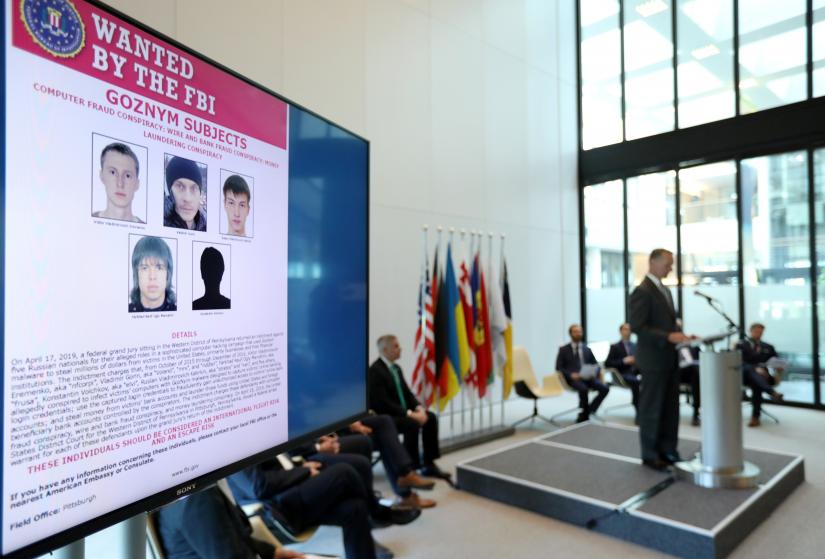 Police in six countries have dismantled a complex cybercrime network that operated from Eastern Europe and fleeced victims - including small businesses and charities - of some $100 million, Europe's police agency said on Thursday.
Police in six countries have dismantled a complex cybercrime network that operated from Eastern Europe and fleeced victims - including small businesses and charities - of some $100 million, Europe's police agency said on Thursday.
The ‘GozNym’ network, led by a man from Tbilisi, Georgia, used phishing emails to infect the computers of more than 41,000 victims with malware. Specialised members of the group in Bulgaria and Ukraine then seized control of victims' online bank accounts and transferred their funds to laundering accounts.
Ten of the network's members have been charged with conspiracy to steal online banking credentials and deposits under a US grand jury indictment.
"The victims included mom and pop businesses..., law firms, international corporations..., non-profit organizations that worked with disabled children," US Attorney Scott Brady told a news conference in The Hague.
Brady said the collaboration between American, Georgian, Ukrainian, German, Bulgarian and Moldovan law enforcement that was required to dismantle the crime group would prove a "blueprint" for future operations.
GozNym featured the Georgian ringleader, a Russian software developer, encryption experts in Moldova and Kazakhstan, "account takeover specialists" in Bulgaria and Ukraine, as well as assorted spammers, money launderers and "mules" (money carriers).
The defendants allegedly advertised their specialised technical skills and services on underground, Russian-speaking online forums.
The operation against the group began in 2016 with a German-led action in Ukraine that shut down the network’s servers.
Its alleged leader is being prosecuted in Georgia. Other prosecutions are underway in Moldova, Ukraine and the US.
Five Russians charged in the US indictment, including the man accused of having developed the malware, remain at large, according to Europol.
 Tech
Tech
30761 hour(s) 55 minute(s) ago ;
Noon 12:49 ; Saturday ; Apr 20, 2024
International cybercrime network dismantled
Send
Reuters
Published : 20:56, May 16, 2019 | Updated : 21:17, May 16, 2019
Published : 20:56, May 16, 2019 | Updated : 21:17, May 16, 2019
0 ...0 ...
/zmi/
Topics: Top Stories
- KOICA donates medical supplies to BSMMU
- 5 more flights to take back British nationals to London
- Covid19: Rajarbagh, Mohammadpur worst affected
- Momen joins UN solidarity song over COVID-19 combat
- Covid-19: OIC to hold special meeting
- WFP begins food distribution in Cox’s Bazar
- WFP begins food distribution in Cox’s Bazar
- 290 return home to Australia
- Third charter flight for US citizens to return home
- Dhaka proposes to postpone D8 Summit
Unauthorized use of news, image, information, etc published by Bangla Tribune is punishable by copyright law. Appropriate legal steps will be taken by the management against any person or body that infringes those laws.
Bangla Tribune is one of the most revered online newspapers in Bangladesh, due to its reputation of neutral coverage and incisive analysis.
F R Tower, 8/C Panthapath, Shukrabad, Dhaka-1207 | Phone: 58151324; 58151326, Fax: 58151329 | Mob: 01730794527, 01730794528






